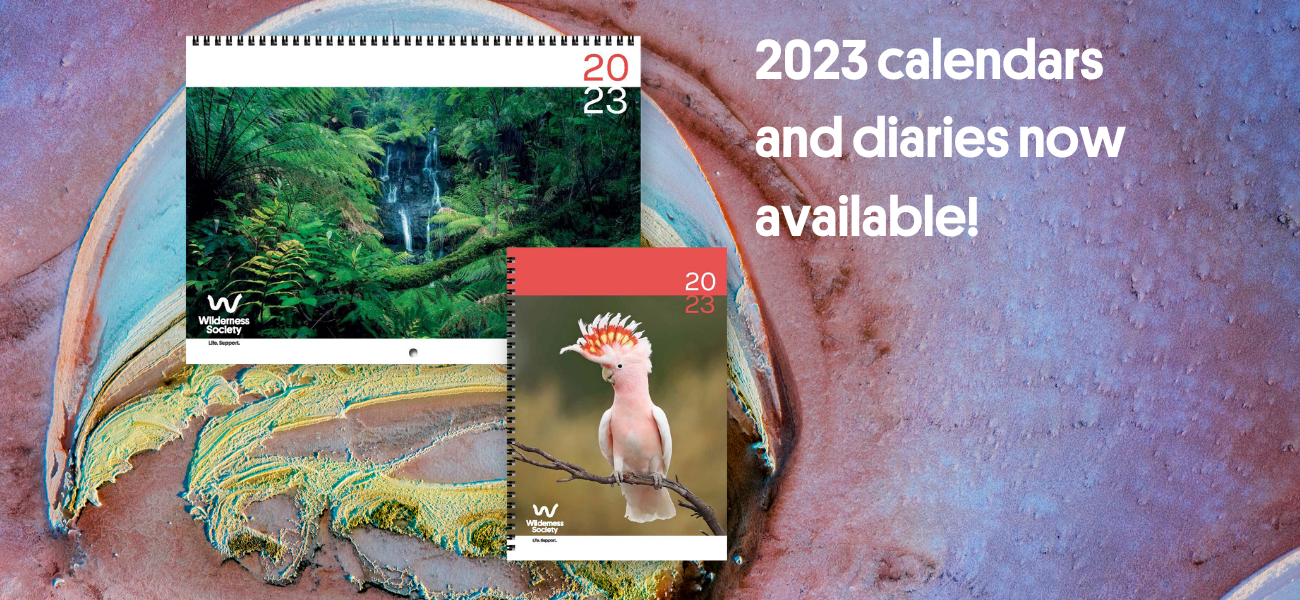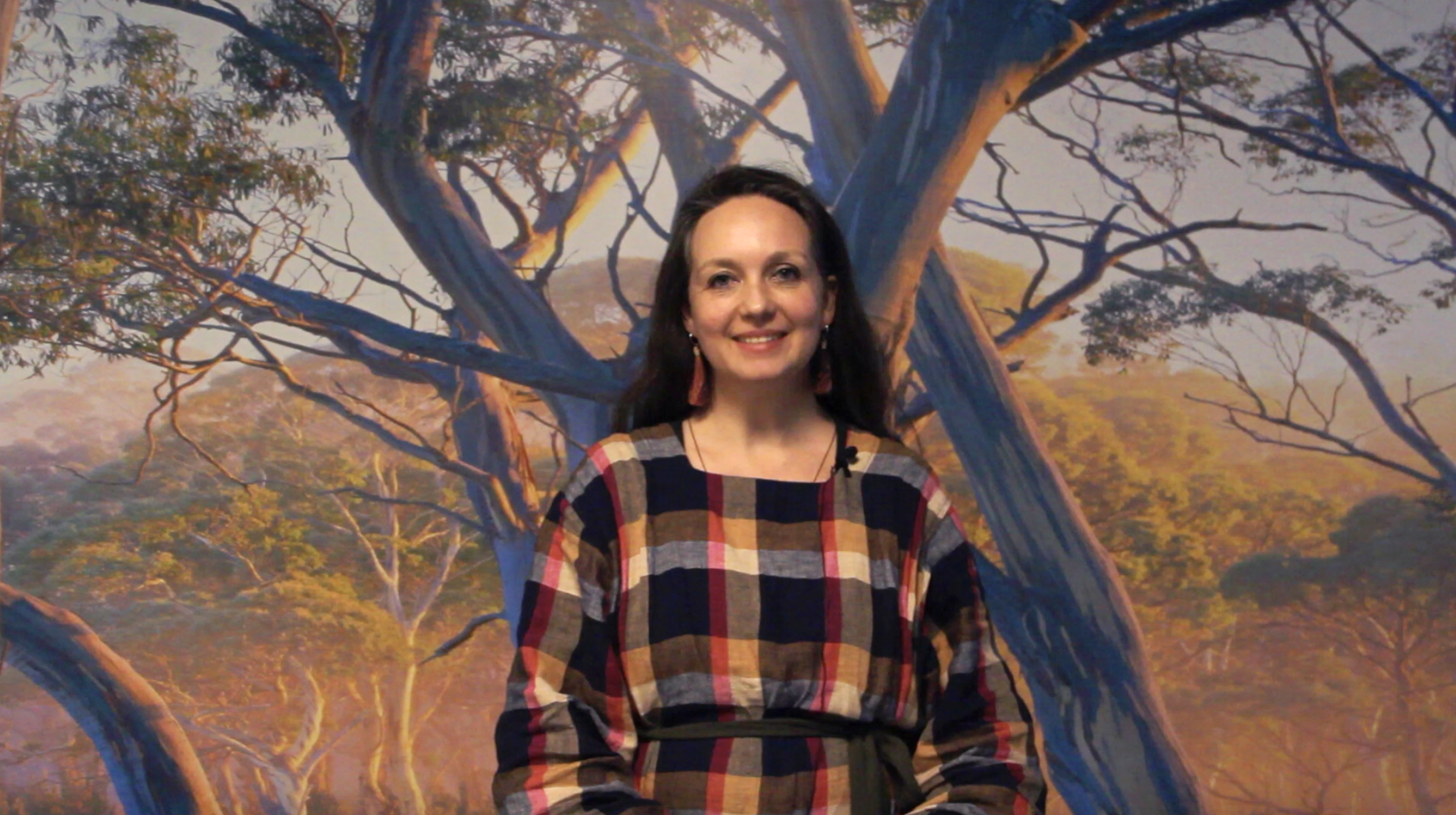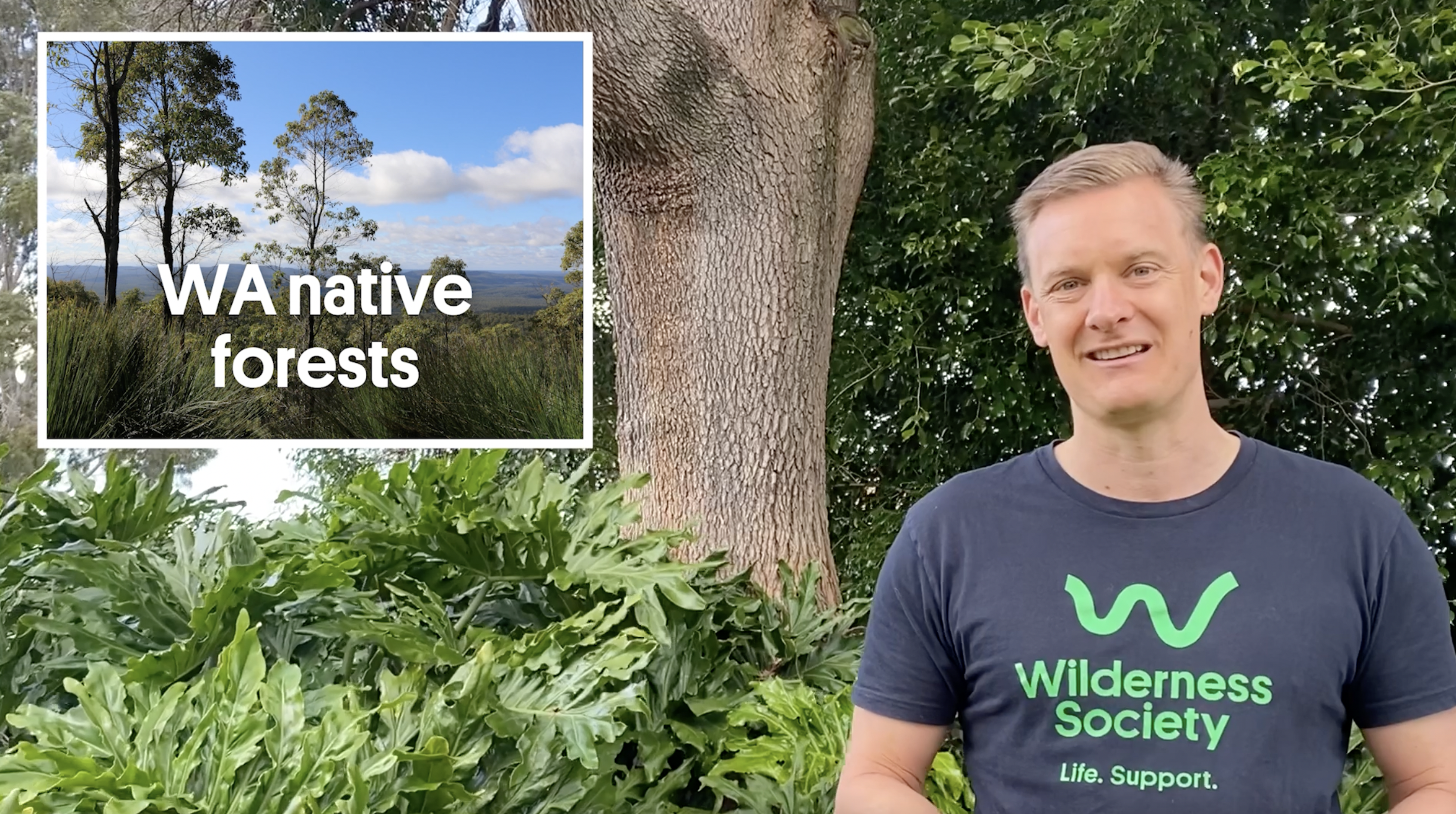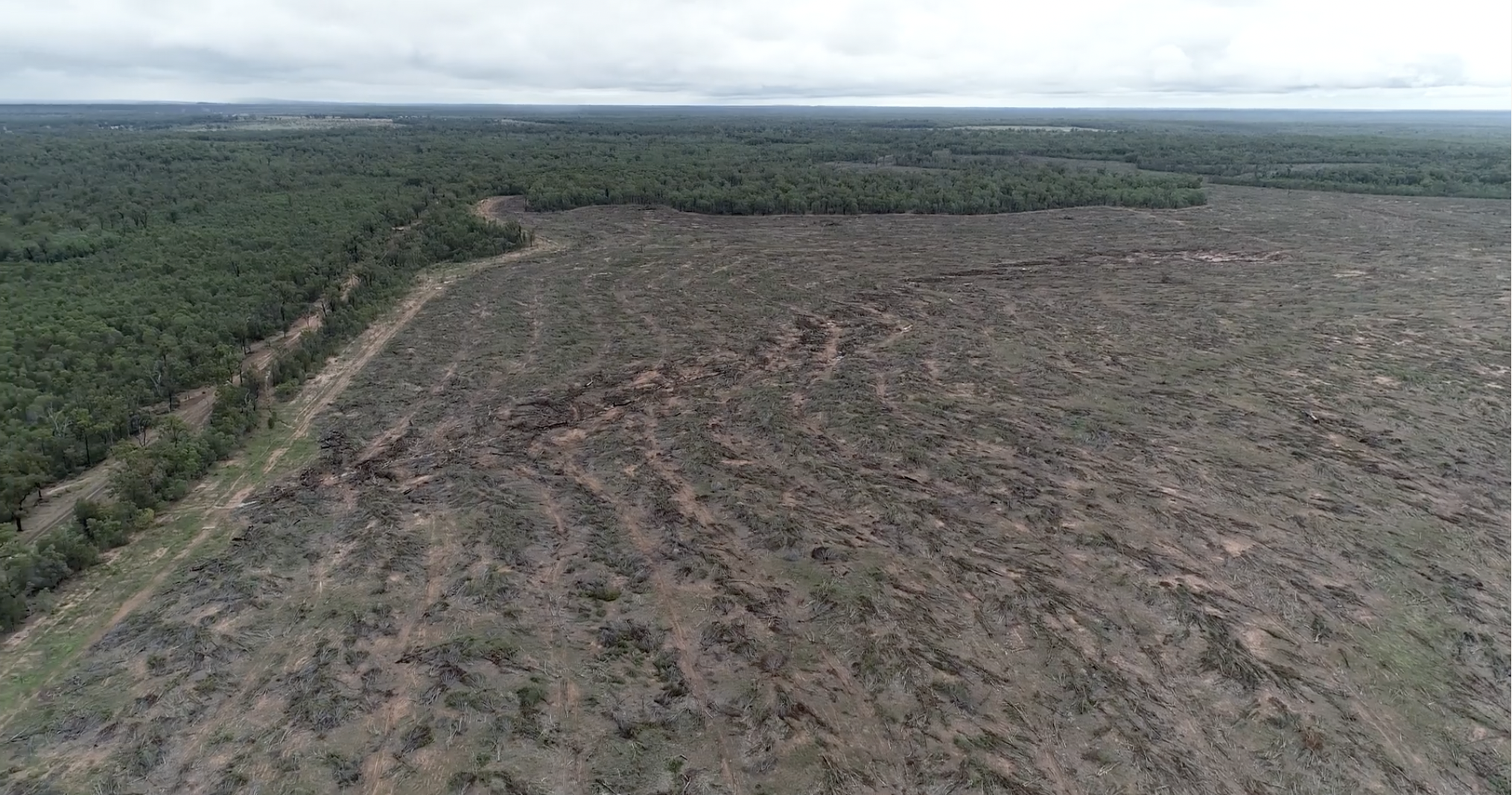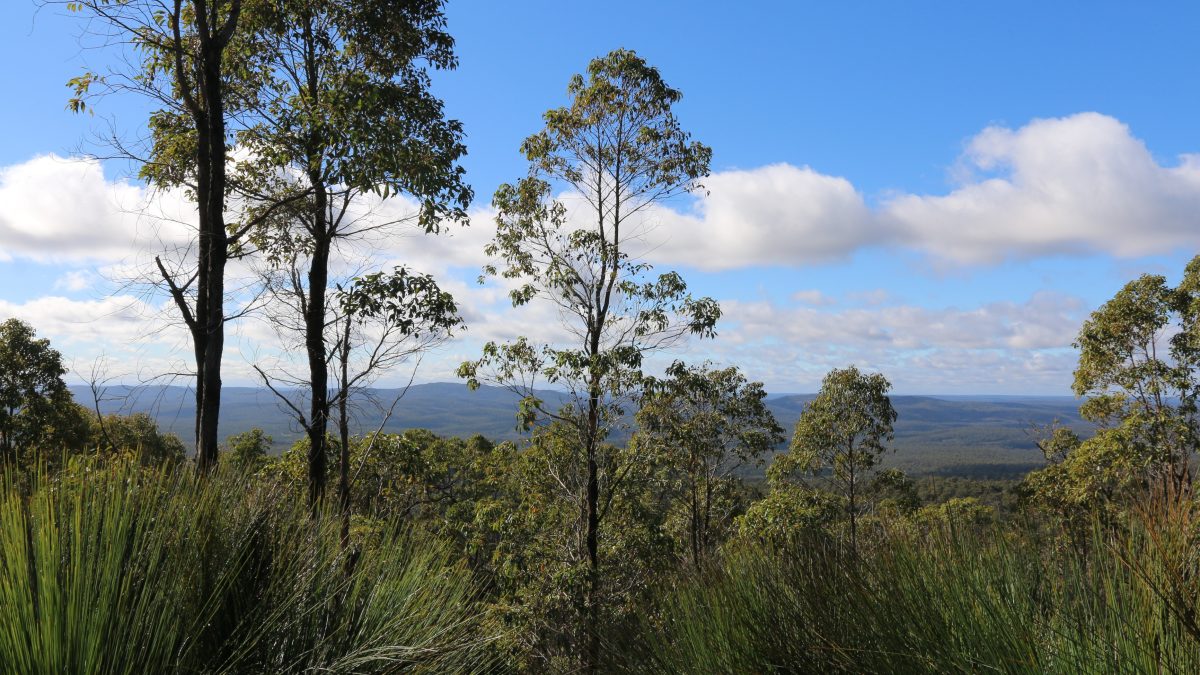
Celebrating the wins
Take a look at the wins we've accomplished from July to September 2022 because of your support.
From across the waters, you asked for stronger regulations to help stop European-funded deforestation of Australia's forests. Then back here, you exposed industries responsible for the mindless release of Australia's oceans for fossil fuels development and much more.
Thank you for all that you do for nature
In July, after months and months of waiting, the Federal government released the State of the Environment Report which paints a picture of Australia’s worsening nature crisis. It was a sombre event as it was clear—now more than ever—that Australia’s wildlife and the ecosystems they call home must be protected.
Wilderness Society campaigner Adele travelled to Brussels where she met European decision-makers and delivered a letter signed by more than 13,500 people like you. Together, we called on them to create strong regulations to help stop European-funded deforestation of Australia's forests. And they are on the way to doing exactly this!
Wilderness Society launched the Karajia Award for Children’s Literature—the Award celebrates children’s books from this continent's First Nations authors and/or illustrators. The titles honour a connection to Country and tell stories exploring land, community, culture and language.
Our work in numbers
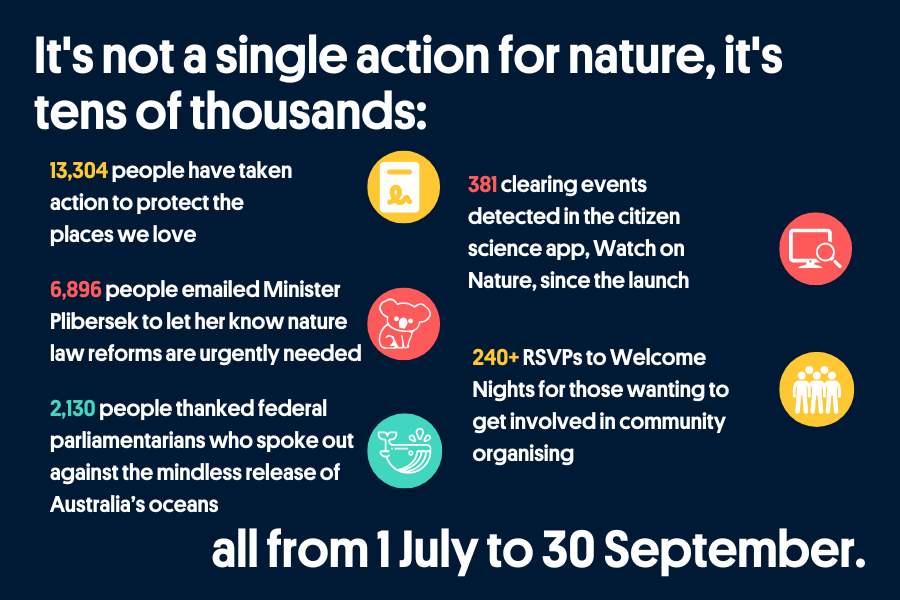
Preventing fossil fuel developments
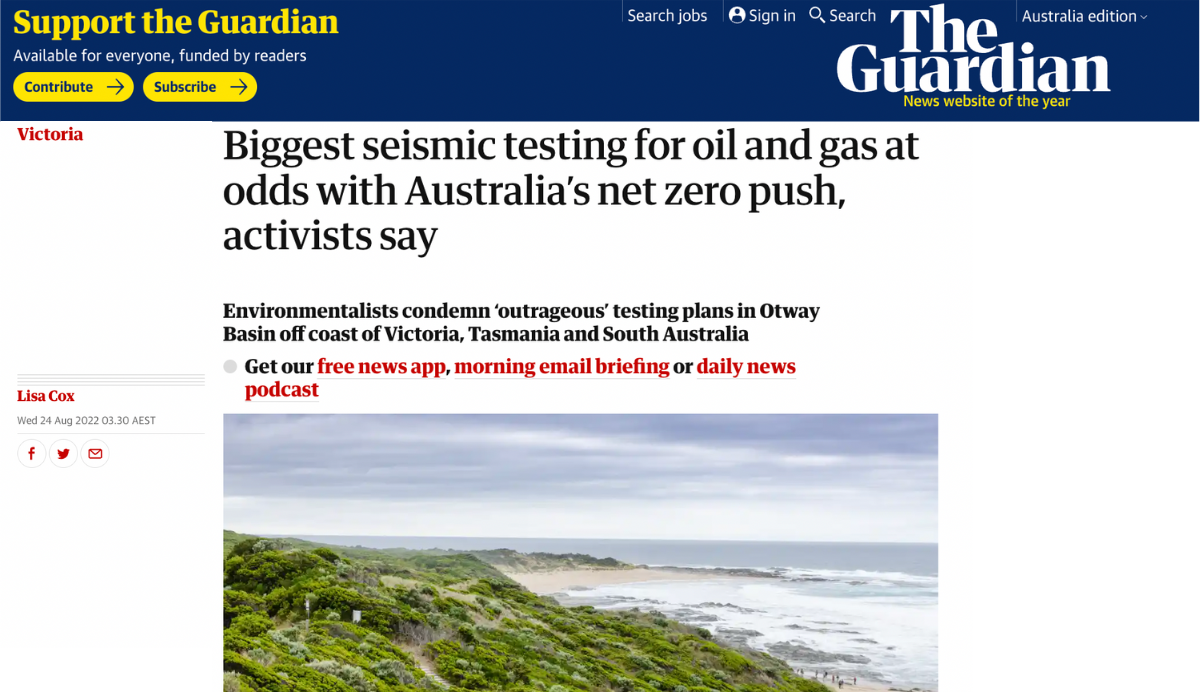
It’s 2022… the UN, the International Energy Agency and COP26 have all provided grave warnings that there should be no new fossil fuel developments.
In May, the Albanese government was elected by millions of Australians who want action for the planet—action that has integrity.
And yet, in August there was a new seismic survey proposed off the coasts of South Australia, Victoria and lutruwita / Tasmania that the Wilderness Society and our allies exposed. This is a monster proposal—over an area larger than the whole of lutruwita / Tasmania. First Nations groups, fishers and environment groups are united in opposition but the proposal should never have even been entertained. Not in a climate emergency. Not in 2022.
It is thanks to people like you that the Wilderness Society is able to expose proposals like this and bring national media attention to them. The Guardian broke the story on 24 August.
Wilderness Society Manager of Policy and Strategy Tim Beshara was quoted. Tim said Australia’s system of acreage release, permit application and environmental approval was a “check-a-box system”.
“At no point do the oil and gas players think they’ll be told no,” he said. “There is something gravely wrong here when an area of seabed larger than Tasmania can be made available to an oil-services firm for speculative seismic blasting before the Australian government has even considered whether fossil fuel extraction would be appropriate.”
Update on WA's native forests
In the past few months, the Wilderness Society has been able to progress a number of major issues related to Western Australia’s native forests and it’s all because of your support.
You may have been one of the 2,286 people who signed the petition to call for an end to bauxite mining expansions in the Northern Jarrah Forest. Maybe you've provided a donation to support our ongoing case against Rio Tinto to prevent new mining leases from being granted. Or you may be about to participate in the upcoming consultation on the draft Forest Management Plan, which can lead to an end to native forest logging in WA and the protection of more than 400,000 hectares of native forest.
These areas should be protected for their biodiversity values and their unique flora and fauna, and with your help, we’ll continue to work to protect the magnificent jarrah, karri and wandoo forests of WA’s South West.
Drones: Exposing Australia's deforestation crisis
The Wilderness Society aims to raise awareness of the deforestation crisis by obtaining footage of large-scale destruction. By exposing the truth of what our land-clearing crisis looks we will:
obtain evidence we can give to governments to engage those responsible;
ensure this issue is regularly in the national and state media
build pressure on political and industry targets to stop the dozers.
The 7.30 Report used that evidence to talk about Category X—a type of legal destruction in Queensland. In this instance multiple threatened species were likely impacted by the clearing of mature regrowth across the property. Erosion in the Great Barrier Reef catchments and carbon impacts are all significant when clearing occurs at this scale.
Running for threatened species
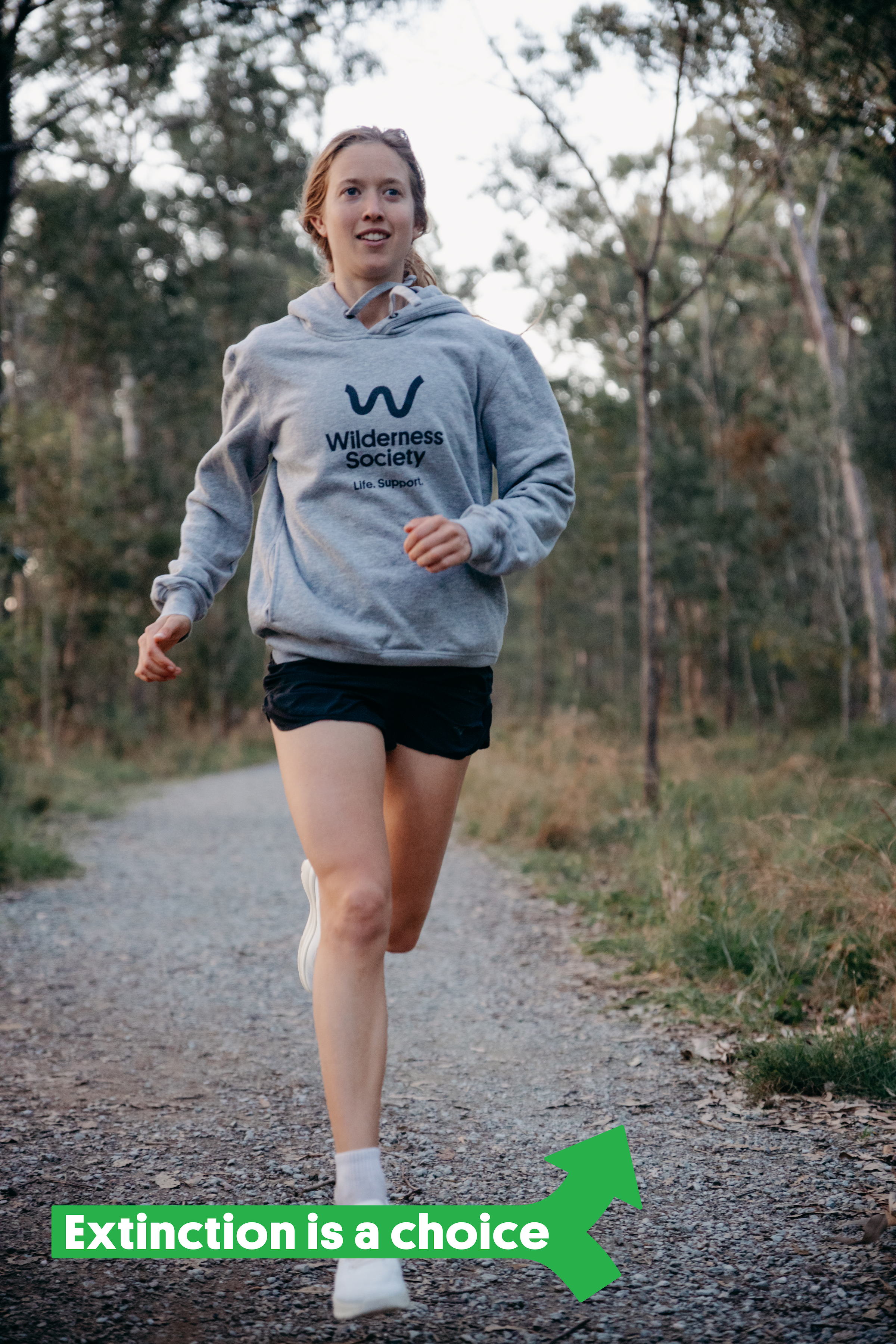
Thirty-two-year old marathon runner Erchana Murray-Bartlett is on a wild mission—running 6,200kms from the tip of mainland Australia to the toe—Cape York to Naarm / Melbourne. Partnering with the Wilderness Society, her goal is to raise awareness about Australia’s extinction crisis.
“I’m running for the creatures who are running out of time. I’m stopping at schools, local environment and community groups to spread our message along the way,” says Erchana.
Australia’s biodiversity is incredibly unique, and yet, we are second in the world for biodiversity loss. With over 2,000 animal and plant species on the national threatened species list, the crisis has not gotten any better. Just this year, koalas were classified as endangered in NSW, QLD & ACT.
Since August, she has been running the length of a marathon every single day, with an aim to raise $62,000 to help address the extinction crisis. The funds raised from Tip to Toe will be donated to the Wilderness Society. Thanks to people like you who have donated to support Erchana’s cause, she’s raised nearly a third of her goal. Let’s continue to raise awareness that extinction is a choice.
Telling stories to save nature
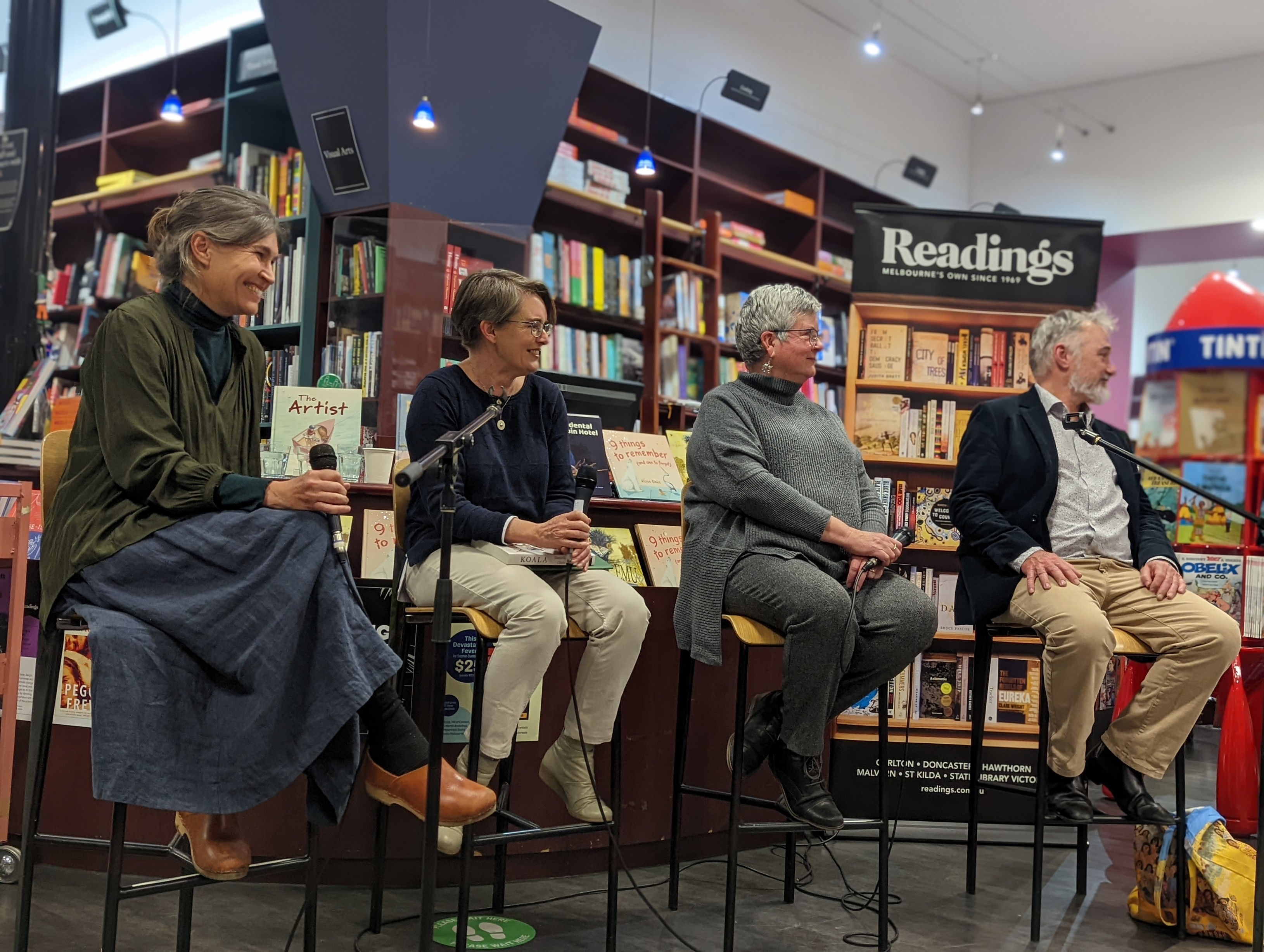
“What I really hope is that children and parents and all of us connect with nature in any way that we can. If it's through story, that's a wonderful way. …And once we have that connection with nature, then there's our opportunity to help and to make changes in our lives that will improve the world in the future.”—Author-illustrator Alison Binks at one of the Nature Book Week panel talks.
The Wilderness Society’s annual Nature Book Week festivities took place all across the country from 5-11 September, featuring beloved Australia authors, illustrators and storytellers. There was something for everyone to see, do and be inspired by—no matter your age or where you live—and we’ve received some wonderful feedback from those who attended or held events!
“What an amazing job you did to draw me away from a busy week into this event at short notice. I could have listened to Jen and the panel for another half hour at least.”—Helen, Melbourne
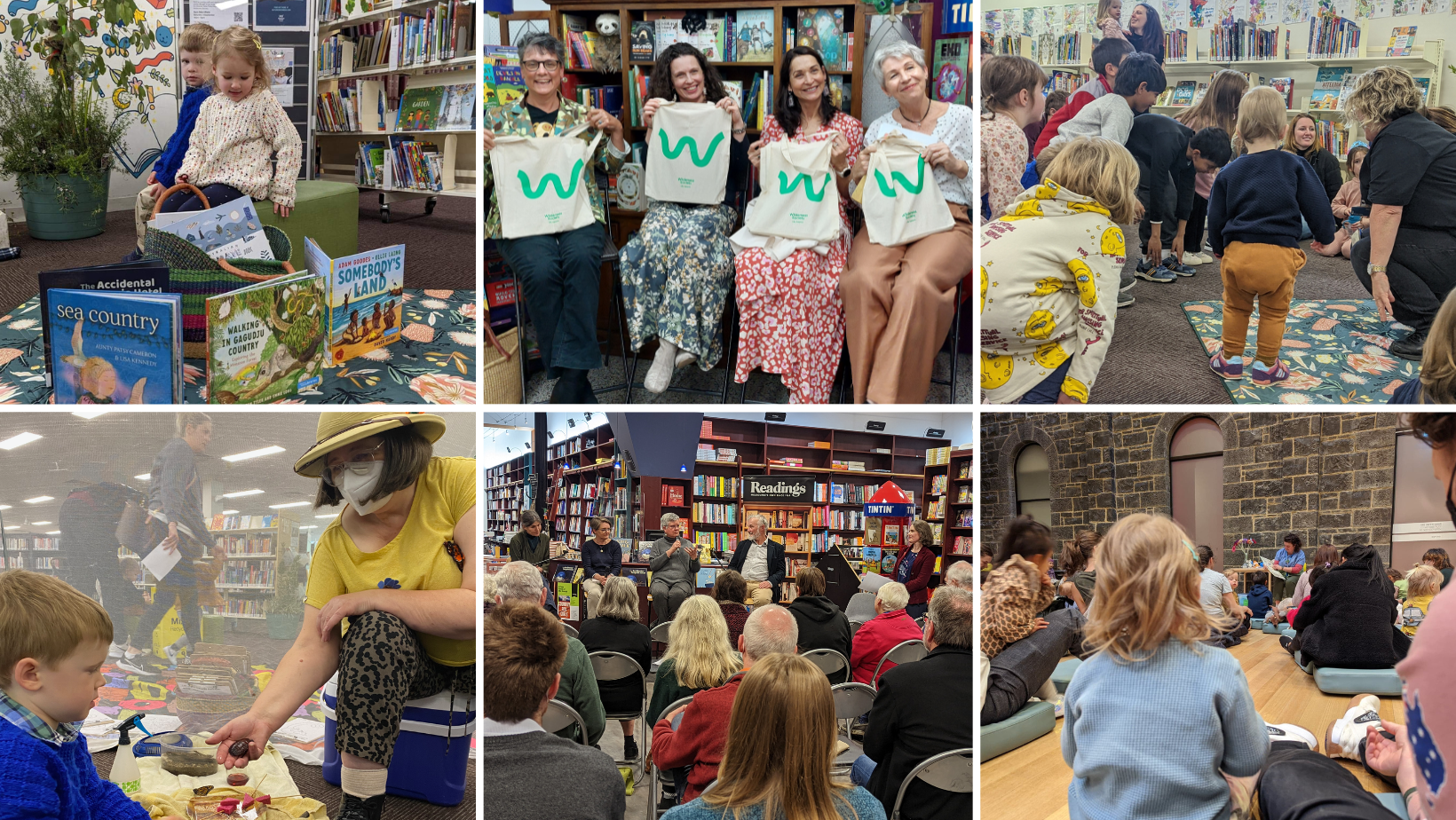
We held panel talks in both Melbourne and Brisbane, with science writers, a zoologist, children’s authors and illustrators generously sharing their insights and wisdom about the power of storytelling and its ability to enlighten and inspire.
Libraries across Australia held Nature Book Week-themed storytimes—some of them out in parks and reserves—and we had a diverse program of online events for readers of all ages. A handful of these virtual events are still available online at Nature Book Week, including a discussion between our CEO Matt Brennan and First Nations author and astronomer Karlie Noon; an in-conversation piece with Uncle Bunna Lawrie and Boori Monty Pryor about why we need stories; and a panel of ecologists answering kids nature questions!
The week culminated in the announcement of the winners of the 2022 Karajia and Environment Awards for Children’s Literature at an event at Gleebooks in Sydney. This is the first year we’ve run the Karajia Award, and both shortlists are bursting with wonderful and inspiring reads. You can support Nature Book Week by purchasing a book, and help grow a child’s love of nature.
Changing how we talk about nature
It’s important for community members to get together and have a say in environmental decisions that impact nature and their future. With your support, we’ve been able to do that.
Wilderness Society community organising teams have been going out to the streets to gather support for environmental changes they want to see in their communities. And they’re giving nature a voice that can’t be ignored across the country.
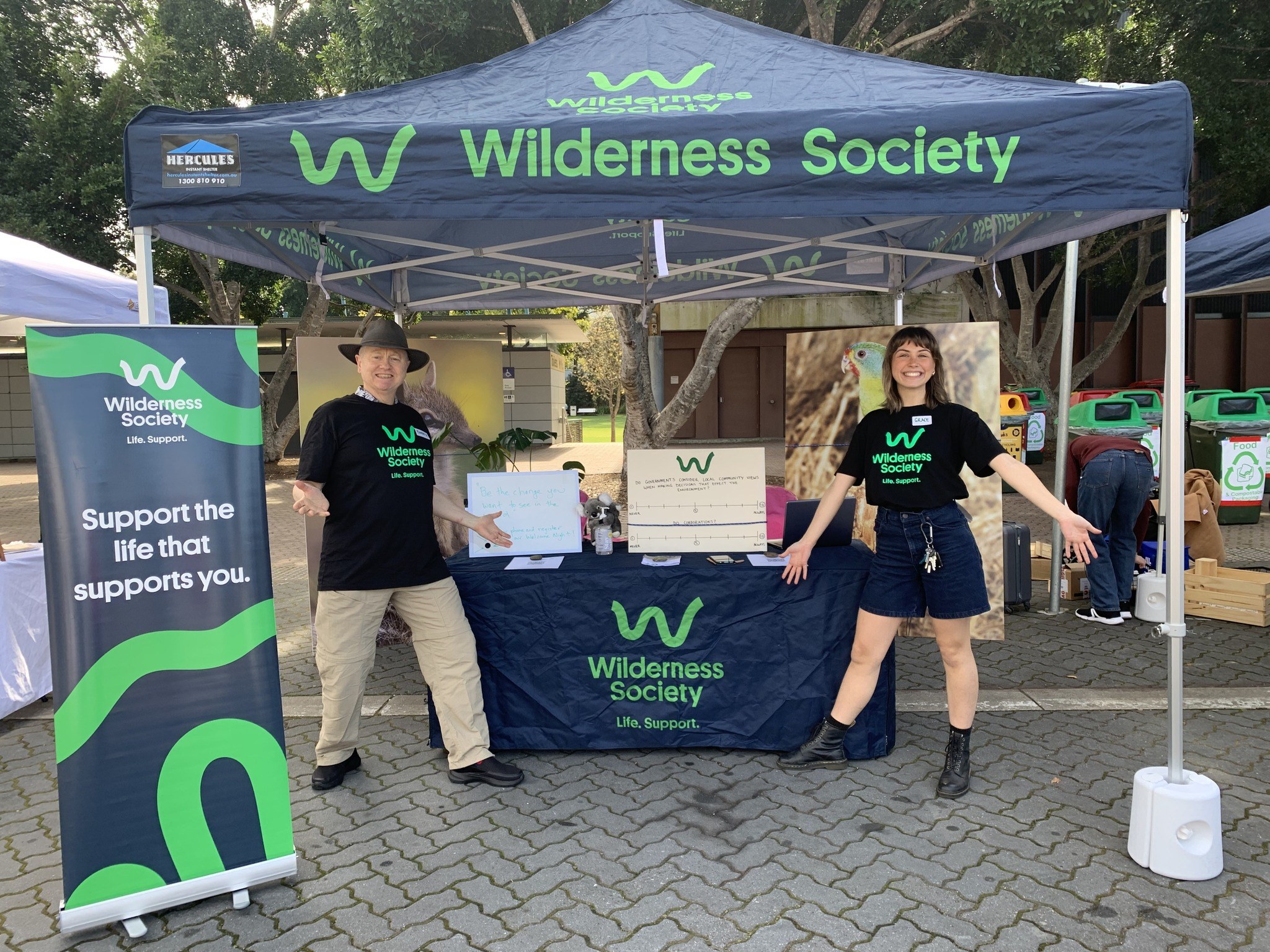

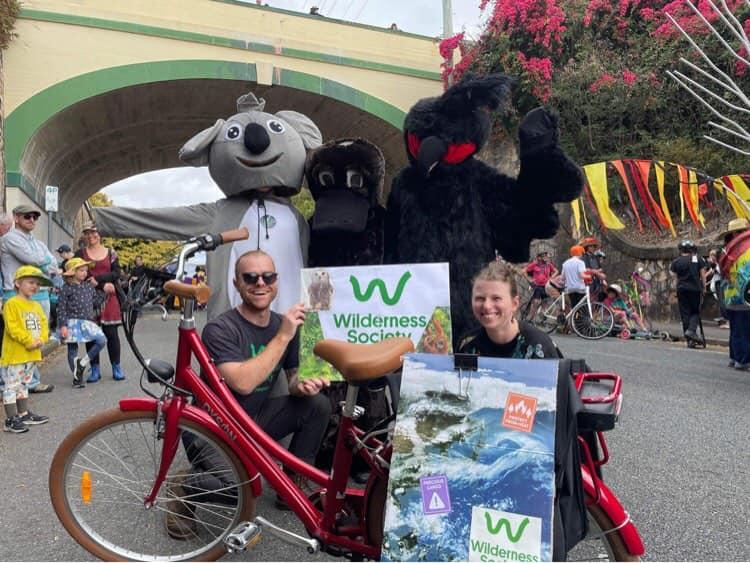
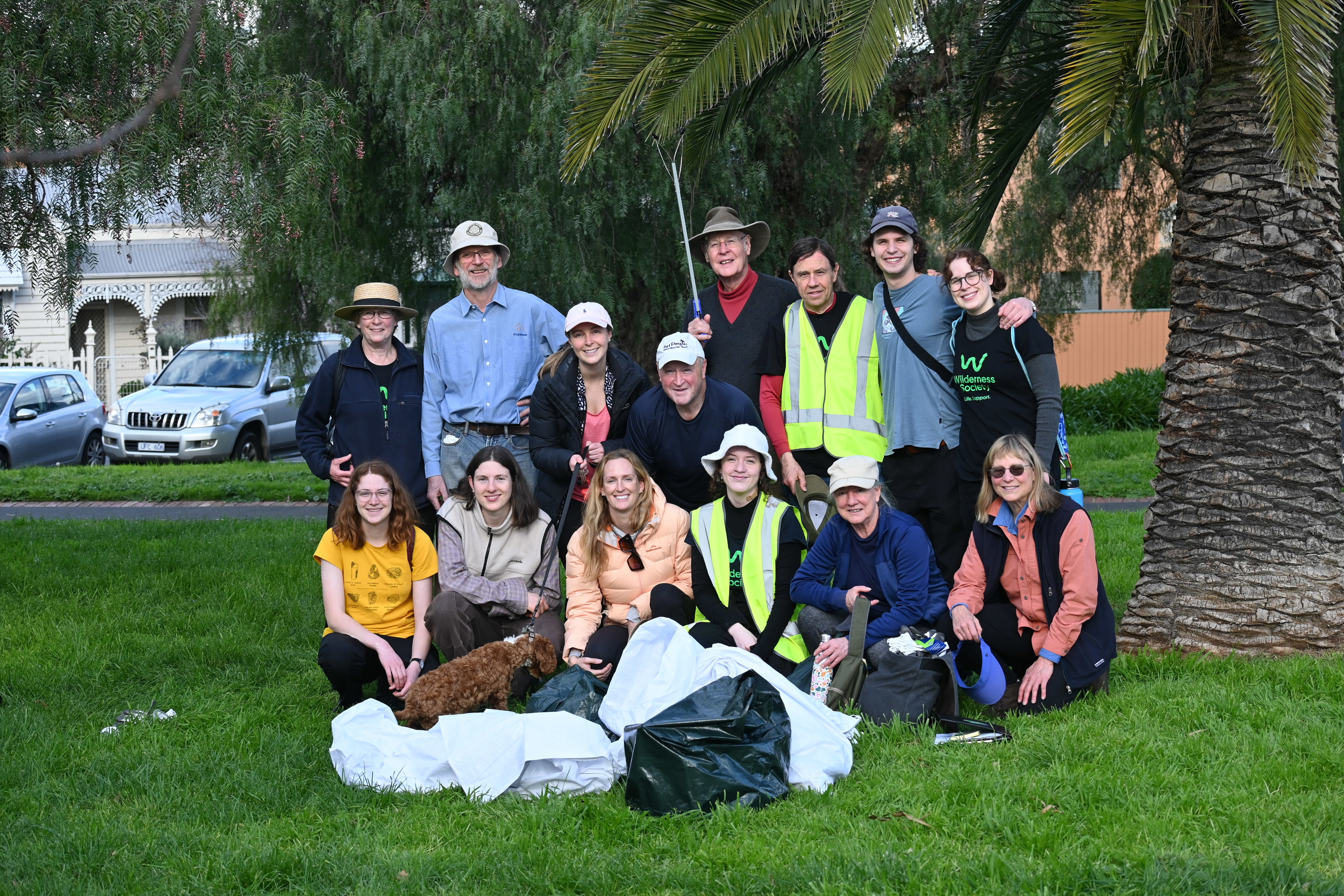
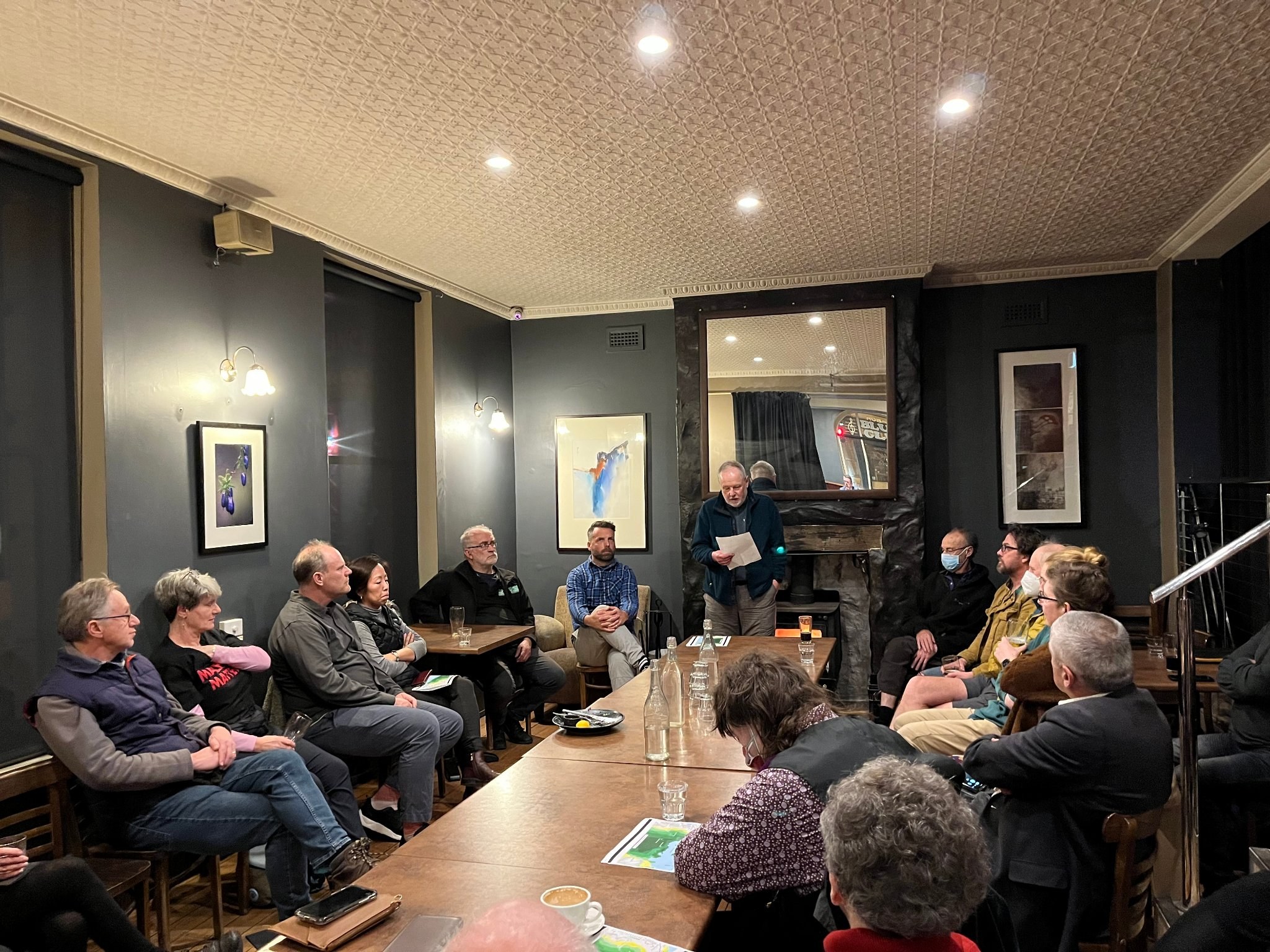
New South Wales
The Homebush organising team held a stall at the Sydney Vegan Markets! The team was able to meet members of the community to talk about community rights in environmental decision-making and how they can get involved.
New South Wales
"Do governments (or corporations) consider local community views when making decisions that effect the environment?" asks the Homebush organising team. What are your thoughts?
Queensland
A koala was spotted in Brisbane! The Inner South Brisbane team showed up at the Kurilpa Derby to meet new people who also value nature and want to make a difference.
Victoria
The Melbourne East community organising team held a clean-up in Hawthorn. As they discussed how to engage with newly appointed Independent MPs in the area, what they want to see done in the future and Wilderness Society campaigns, they all said they had a “feeling full of hope”. | Susan Whelan
lutruwita / Tasmania
Corporate developments are threatening lutruwita / Tasmania’s South Coast Track, and there’s a possible re-emergence of a development proposal for Lake Malbena within the Walls of Jerusalem National Park, both located within World Heritage areas. So, the nipaluna / Hobart community organising team held an Information Night to let community members know about the threat, and what they can do to help.
Proposal in Lake Malbena
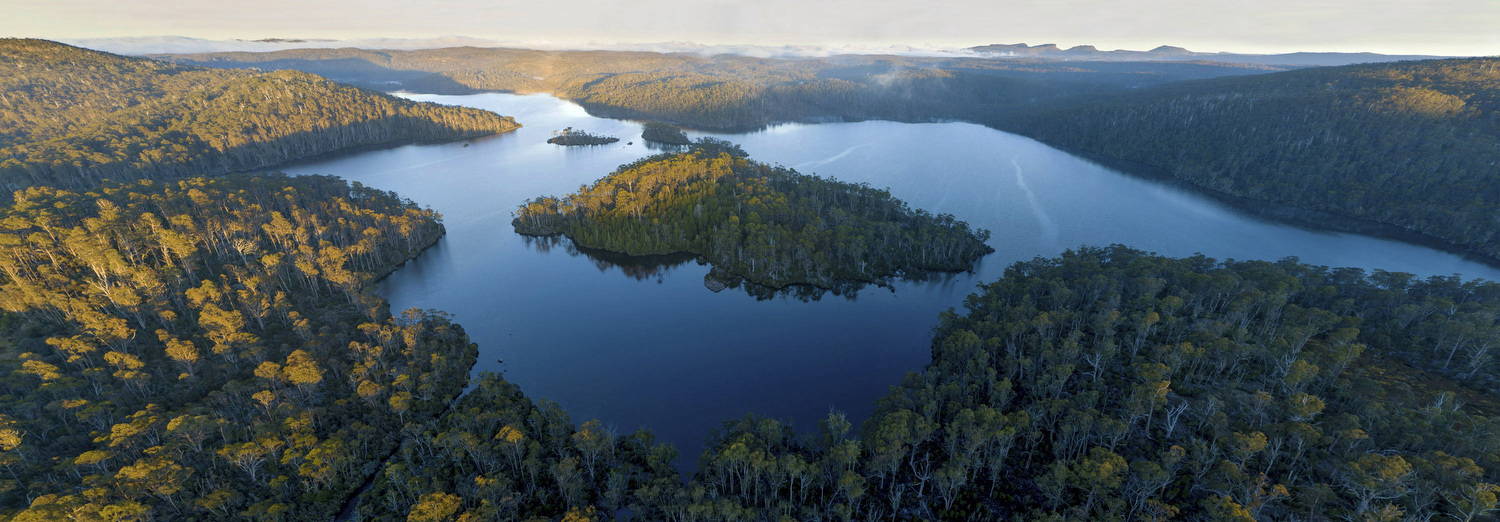
In the last three years, thousands of people like you have secured a number of wins to protect Lake Malbena and the Tasmanian Wilderness World Heritage Area. And we now are at one of the most critical opportunities to keep Lake Malbena and Halls Island intact.
Inappropriate tourism developments are threatening the integrity of lutruwita / Tasmania’s Wilderness World Heritage Area. Despite near-universal opposition to parks privatisation, Wild Drake is persisting with its helicopter-tourism bid for Lake Malbena in Walls of Jerusalem National Park.
Backed by people like you, we won our Federal Court case in 2018, which found the assessment process had been unlawful. The victory sent the proposal back to the Environment Minister to consider. Then Commonwealth Environment Minister Sussan Ley expressed her concern that the proposal would impact wedge-tailed eagles and wilderness values.
Wild Drake hasn’t changed its scheme, but is again seeking approval to go ahead with its reckless plans.
If you haven’t already, will you send a submission today to help protect the world’s highest-rated World Heritage Area from unnecessary exploitation?
